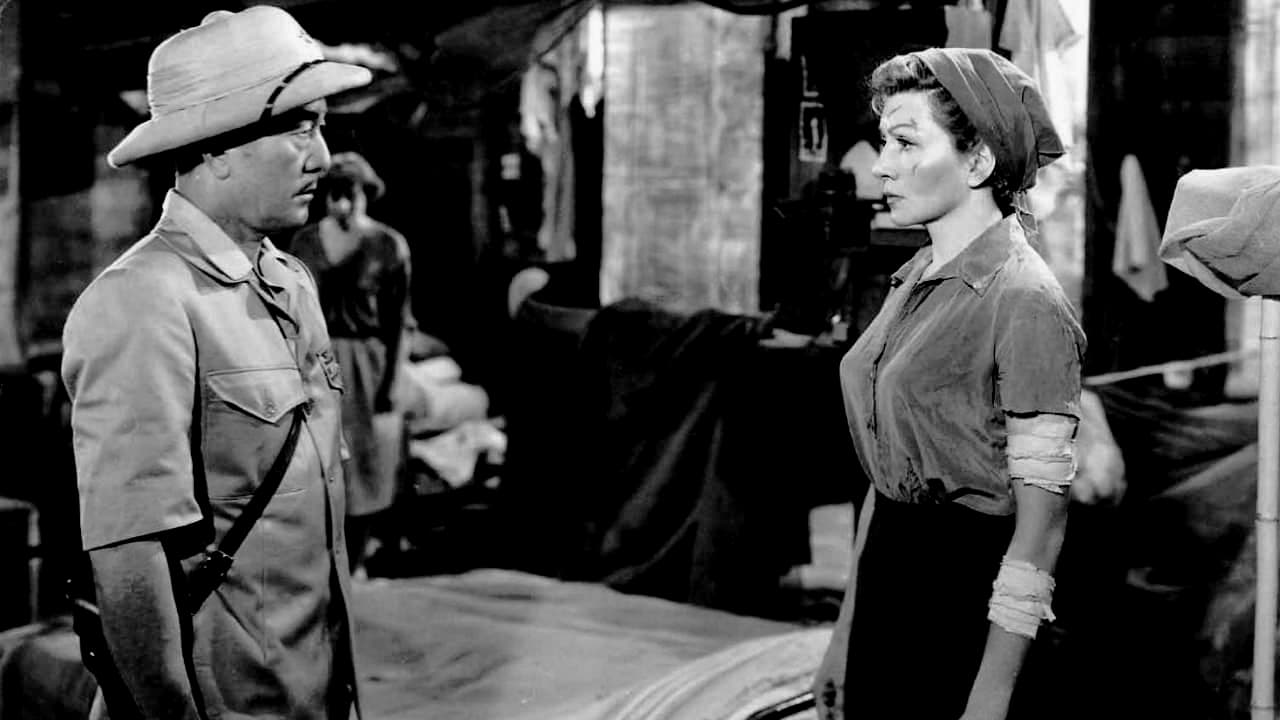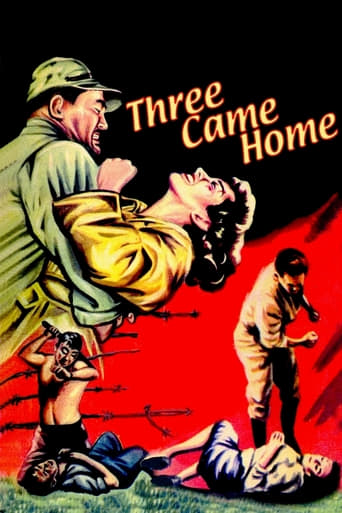

Sadly Over-hyped
... View MoreIn truth, there is barely enough story here to make a film.
... View MoreIf you're interested in the topic at hand, you should just watch it and judge yourself because the reviews have gone very biased by people that didn't even watch it and just hate (or love) the creator. I liked it, it was well written, narrated, and directed and it was about a topic that interests me.
... View MoreThis film is so real. It treats its characters with so much care and sensitivity.
... View MoreBased on true events, this film adaptation represents a horrendous moment in time for many countries. How one could adjust to such an impoverished environment and unimaginable treatment over many years is one of legend. With such a strong storyline that exemplifies the mothers and children who survived this ordeal, who could envision having the mental clarity and sense of impartiality to write a book on her experience.I have not read Mrs. Keith's book but other reviewers consider this film a fair treatment. With very limited experience of the depth of deprivation, hunger, and humiliation, I can only assume this film highlighted a partial view of actual emotions. With extensive controversy surrounding the war, each opposing side cites propaganda motives at every turn. Mrs. Keith being well-educated and an author of some notoriety, it is hard to believe her account is not valid.I found this film to be extremely educational, inspirational and heartwarming. My only Hollywood type comment is: Why did the crippled POW men have to WALK to the women's camp when all the able bodied were hootin' n hollerin' with joy in the open air trucks. Made no sense, but of course it did make the "Three Came Home" theme closer to home.
... View MoreThis is a rather remarkable film because it is a basically true story, and much of it was filmed in locales where it actually took place.Made in 1950, it is rather faithfully based on the memoirs of Agnes Newton Keith. It tells the story of her family's ordeal of being civilian POWs of the Japanese after the Japanese invasion of what is today Indonesia. Keith and her young son were interned at a camp in Sarawak, which was not liberated until September, 1945. Her husband had been a British official in the region and was interned at a different camp for men.None of us can imagine what it must have been like for the Brits taken prisoner, but this film gives one a pretty good idea. As I watched the film several things occurred to me. First that these women and children -- at least according to this film -- had to live much as many "locals" live in southeast Asia today "upcountry". I lived in Thailand for a while, and when I visited my partner's village in 2010, I saw conditions much like some depicted in this film. Of course, it is different when you are prisoner. I also detected racial tension, though subtle, in this film.Surprisingly, the most touching scenes of the film were when the Japanese camp commandant learns this his entire family was killed in the atomic bombing of Hiroshima, and he takes 3 of the British children to his temporary home near the camp for a sort of picnic.As always, Claudette Colbert was excellent here, as was Sessue Hayakawa, who plays a very different role than his character in "The Bridge On The River Kwai".This is not a film I want on my DVD shelf, but it is very good.
... View MoreDuring WWII a family stationed in Borneo is captured by the Japanese and struggle to survive in brutal POW camp in the Far East. This is a true story, exterior scenes were photographed wherever possible in Borneo in the exact locales associated with the event as related by Mrs Keith (Claudette Colbert) , an American married to a British administrator (Patrick Knowles). The happenings throw the whole family into a hard concentration camp . Their confinement is recounted in unsparing and harrowing detail , as the British-American family find themselves interned for the long duration . As orders from Nipponese Army Administration are strict as ¨ All Europeans will evacuated swiftly to prison camps , be ready when the truck calls , each prisoner will be permitted one suitcase . Men and women will be imprisoned separately ¨ . ¨To avoid punishments and beatings , the ladies should presume themselves to endeavor , with passive behavior not negative¨. Meanwhile, Mrs Keith suffering a surreal and brutal experience ; however , she attempts to lift the spirits of his son and the brutalized women. When Mrs Keith is cruelly attacked , she denounces the deeds , then she is obligated to sign the following : ¨I swear the events are the truth . I was not attacked by a Japanese soldier, I was not attacked by anyone. I made the charge because I was hungry over punished last week ¨.Interesting and strong drama based on an autobiographical book by Agnes Newton-Keith , being perfectly adapted by Nunnally Johnson . No weakest in the cast and few in the movie , which presents the women's Japanese captors as human and inhuman at the same time with clashing cultures included . Clearly there's much longer plot in this, but director Jean Negulesco concentrates on the passionate acting of Colbert . It's a taut psychological drama about physical and emotional survival focusing on the tensions between Claudette Colbert , soldiers and camp commander well played by Sessue Hayakawa as cultured officer. Crammed with emotive moments , the picture has a string of committed performances from Colbert , Knowles , Desmond and Hayakawa . Familiar ground is trod in this prisoner-of-war saga , but the thought-provoking story and magnificent acting help sustain interest. This superior though overlooked drama , is also laudable for a fairly portrayal of the enemy captors and being masterfully directed by Jean Negulesco. Rating : Above average , worthwhile watching .Other film about women on concentration camps mistreated by Japanese military during WWII are the following : ¨Women on valor¨(1986) by Buzz Kulik with Susan Sarandon , Kristy McNichol and Alberta Watson set in Philippines and ¨Paradise road¨(1997) by Bruce Beresford with Glenn Close , Julianna Margulies and Frances McDormand , set in Singapur.
... View MoreThis film is a true story and Ms. Colbert delivers one of her finest film performances without question. It Happened One Night is also one of her other performances. This war film shows the contrasting differences of brutality and humanity the Japanese Armed Forces was known for and is unique and horrific to see at times. This film is an essentially important film in the way that it should remind us all how fragile our freedoms really are. But it does show how far Japanese American relations came in five years. The performance turned in my young "George" the little boy who played Colberts son is only one of two listed performances he is known for. He was seven years old at the time but appears to be five years old which by design makes the audience feel even more sympathy and anger towards his mistreatment. This is one of my five favorite films.
... View More